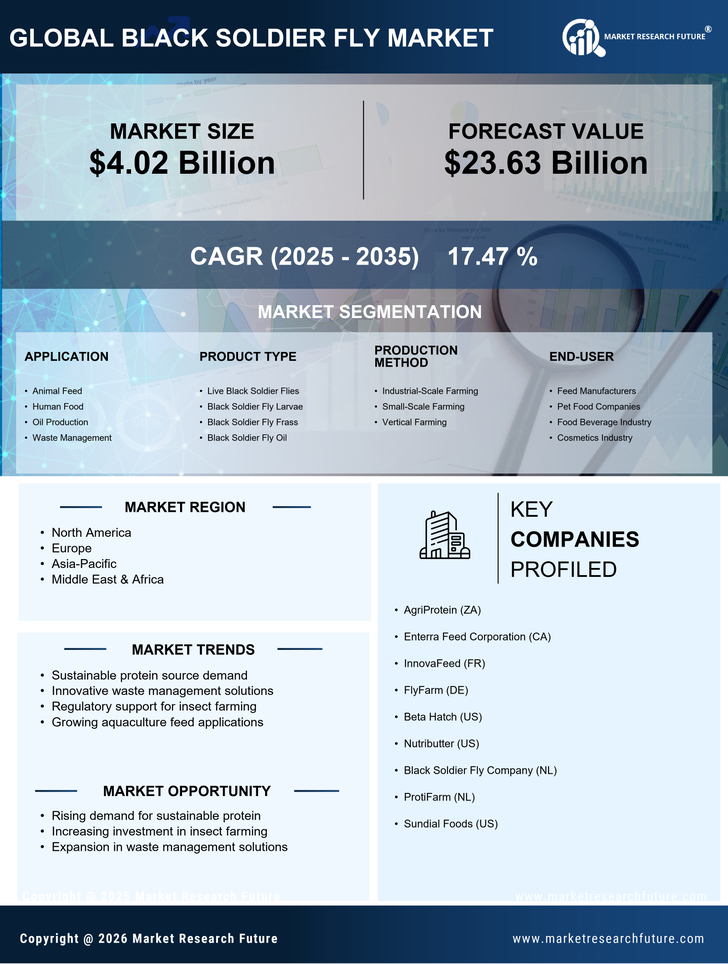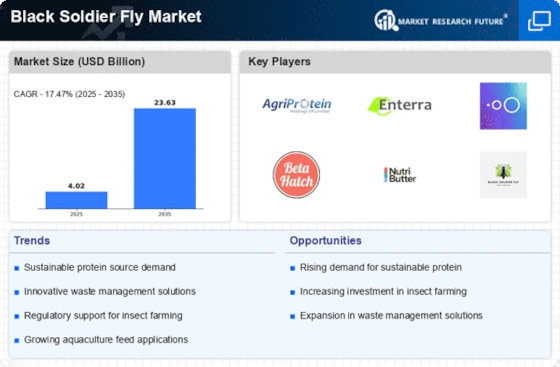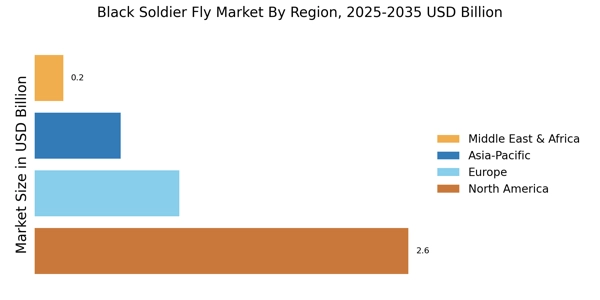Regulatory Support
Regulatory frameworks supporting the use of insects as a food source are emerging as a crucial driver for the Black Soldier Fly Market. Governments and regulatory bodies are increasingly recognizing the potential of insect protein in addressing food security and sustainability challenges. For example, several countries have begun to establish guidelines for the safe production and consumption of insect-based products. This regulatory support not only legitimizes the industry but also encourages investment and innovation. As more countries adopt favorable regulations, the Black Soldier Fly Market is poised for expansion, with an anticipated increase in production capacity and market penetration. The establishment of clear regulatory pathways may also enhance consumer confidence in insect-based food products.
Technological Innovations
Technological advancements in insect farming and processing are significantly influencing the Black Soldier Fly Market. Innovations in breeding techniques, automated farming systems, and processing technologies enhance the efficiency and scalability of black soldier fly production. For instance, the development of controlled-environment systems allows for year-round production, optimizing yield and reducing costs. The market is expected to grow at a compound annual growth rate of around 25% over the next five years, driven by these technological improvements. Furthermore, advancements in data analytics and monitoring systems enable producers to optimize feeding and breeding conditions, thereby increasing productivity. As these technologies continue to evolve, they are likely to propel the Black Soldier Fly Market forward.
Sustainability Initiatives
The increasing emphasis on sustainability appears to be a pivotal driver for the Black Soldier Fly Market. As environmental concerns escalate, industries are seeking eco-friendly alternatives to traditional protein sources. Black soldier flies, known for their ability to convert organic waste into high-quality protein, present a viable solution. The market for insect protein is projected to reach approximately 1.5 billion USD by 2027, indicating a growing acceptance of insect-based products. This shift towards sustainable practices not only addresses waste management issues but also reduces the carbon footprint associated with conventional livestock farming. Consequently, the Black Soldier Fly Market is likely to benefit from this trend, as more companies integrate insect protein into their supply chains.
Rising Demand for Animal Feed
The surging demand for sustainable animal feed is a significant driver for the Black Soldier Fly Market. Livestock producers are increasingly seeking alternative protein sources to meet the nutritional needs of their animals while minimizing environmental impact. Black soldier fly larvae are rich in protein and essential fatty acids, making them an attractive option for poultry, aquaculture, and swine feed. The animal feed market is projected to grow substantially, with insect protein expected to capture a notable share. This trend is likely to be fueled by the need for cost-effective and sustainable feed solutions. As the demand for high-quality animal feed continues to rise, the Black Soldier Fly Market stands to gain considerable traction.
Consumer Acceptance of Insect-Based Products
The growing acceptance of insect-based products among consumers is emerging as a vital driver for the Black Soldier Fly Market. As awareness of the nutritional benefits and environmental advantages of insect protein increases, more consumers are willing to incorporate these products into their diets. Surveys indicate that a significant percentage of consumers are open to trying insect-based foods, particularly in regions where traditional diets are evolving. This shift in consumer perception is likely to stimulate demand for black soldier fly-derived products, including protein powders, snacks, and animal feed. As the market for insect-based foods expands, the Black Soldier Fly Market is expected to experience robust growth, driven by changing consumer preferences.


















